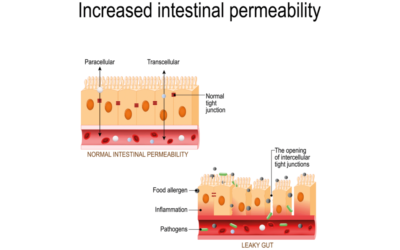Antibiotics have revolutionised medicine by providing a powerful tool to fight bacterial infections. However, while they can be life-saving, antibiotics can also significantly disrupt the gut microbiome, leading to a host of digestive and overall health issues. This article will explore how antibiotics affect gut health and provide effective strategies to restore and maintain a healthy gut microbiome after antibiotic treatment.
The Gut Microbiome: A Delicate Balance
The gut microbiome is a complex ecosystem of trillions of bacteria, viruses, fungi, and other microorganisms that reside in the digestive tract. These microbes play a crucial role in digestion, nutrient absorption, immune function, and even mental health. A balanced and diverse gut microbiome is essential for maintaining overall health and well-being.
When you take antibiotics to treat a bacterial infection, the medication does not discriminate between harmful and beneficial bacteria. This can lead to a significant reduction in the diversity and number of beneficial gut bacteria, creating an imbalance known as dysbiosis.
The Impact of Antibiotics on Gut Health
- Reduction in Microbial Diversity
- Antibiotics can drastically reduce the diversity of the gut microbiome. A diverse microbiome is associated with better health outcomes, including improved digestion, immune function, and mental well-being (learn more about the importance of gut diversity).
- Overgrowth of Harmful Bacteria
- When beneficial bacteria are depleted, harmful bacteria and yeasts may overgrow, leading to conditions such as Clostridium difficile infections or yeast overgrowth. This can result in symptoms like diarrhoea, bloating, and abdominal pain.
- Long-Term Health Consequences
- Prolonged or repeated use of antibiotics can have long-term effects on gut health. Studies have shown that it can take months or even years for the gut microbiome to fully recover after a course of antibiotics. In some cases, dysbiosis may contribute to chronic conditions such as irritable bowel syndrome (IBS) or inflammatory bowel disease (IBD) or, as a child, increase your risk of allergies (explore the connection between antibiotics and IBS).
Recovery Strategies: Restoring Gut Health After Antibiotics
While antibiotics are sometimes necessary, it’s important to take steps to restore gut health after treatment. Here are some strategies to help your gut recover:
- Incorporate Prebiotic Foods
- Prebiotics are non-digestible fibres that feed beneficial gut bacteria, promoting their growth and helping to restore balance in the microbiome. Foods rich in prebiotics include garlic, onions, leeks, asparagus, bananas, and chicory root (discover prebiotic-rich foods).
- Consume Probiotic-Rich Fermented Foods
- Probiotics are live beneficial bacteria that can help replenish the gut microbiome. Consuming fermented foods like yogurt, kefir, sauerkraut, kimchi, and kombucha can introduce these helpful bacteria into your gut, aiding recovery (learn more about the benefits of probiotics).
- Consider Probiotic Supplements
- In addition to fermented foods, probiotic supplements can provide a concentrated dose of beneficial bacteria. (explore the benefits of multi-strain probiotics).
- Adopt a Gut-Friendly Diet
- Focus on a diet rich in whole, unprocessed foods to support gut health. Include plenty of fibre from fruits, vegetables, and whole grains, which can help nourish the gut microbiome. Limit processed foods, added sugars, and unhealthy fats, as these can exacerbate dysbiosis and hinder recovery (find out how diet impacts gut health).
- Stay Hydrated
- Adequate hydration is essential for maintaining a healthy gut lining and supporting digestion. Drinking plenty of water helps flush out toxins and supports the digestive process, particularly during and after antibiotic treatment (learn about the importance of hydration).
- Avoid Unnecessary Antibiotic Use
- It’s important to use antibiotics only when necessary and prescribed by a healthcare professional. Overuse of antibiotics can lead to antibiotic resistance and further disruption of the gut microbiome. Always discuss alternative treatments with your healthcare provider when possible (read about responsible antibiotic use).
The Takeaway: Supporting Your Gut After Antibiotics
Antibiotics are a powerful tool in fighting infections, but they can also disrupt the delicate balance of the gut microbiome. By incorporating prebiotics, probiotics, and gut-friendly practices into your daily routine, you can help restore and maintain a healthy gut after antibiotic treatment. Remember, a healthy gut is key to overall wellness, so taking proactive steps to support your microbiome is essential.
Please note that this article is not a substitute for medical advice and if you have been prescribed antibiotics follow the advice of your doctor.
Book a Consultation Today
If you’ve recently taken antibiotics and are experiencing digestive issues, or if you want to learn more about how to support your gut health, I’m here to help. Together, we can create a personalized plan that addresses your unique health needs and promotes long-term gut health.
#GutHealth #Antibiotics #Probiotics




